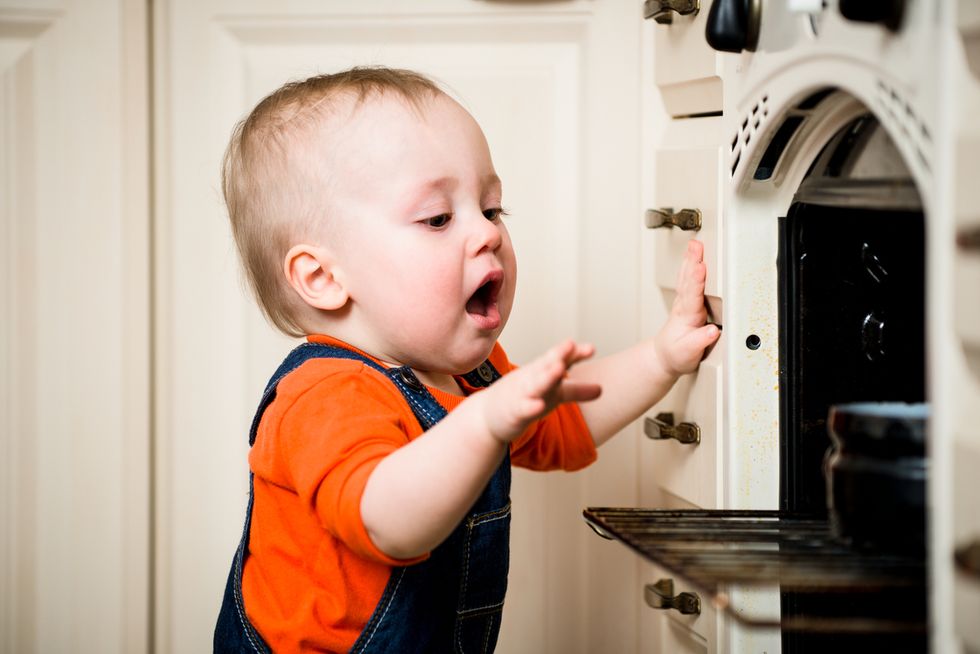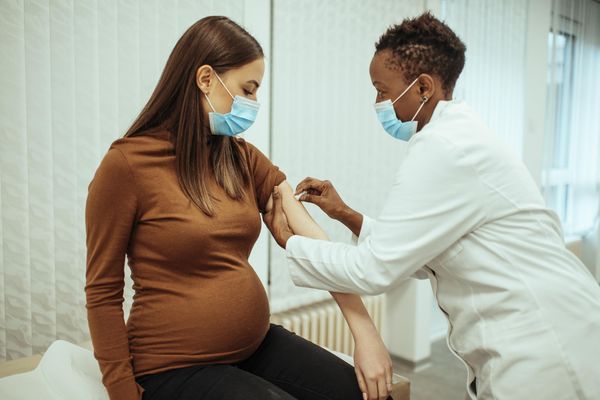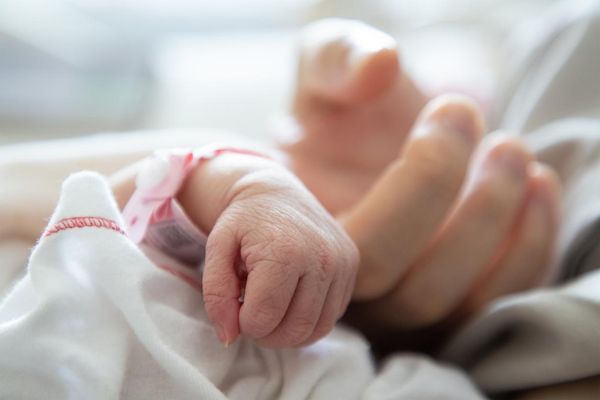You may be a new parent, a not-so-new parent or a grandparent or friend, but when it comes to shielding children from danger, your protective instinct kicks in. Yet, instinct is not always enough. It's important to be aware of some things in your home that you may not realize could be putting a small, vulnerable child at risk for injury or worse.
Each year in our country, more than 2,000 children die from an injury in the home, and more than 3.5 million visit emergency rooms for injuries that happen in homes. Keep your little one safe by being informed.
Dishwashers. Not only do they contain sharp objects like knives and forks, but also the detergents used to clean your dishes can be dangerous. Heed the wise advice of the Environmental Protection Agency, which says that the greatest exposure to toxic chemicals is right inside our own homes: Many commercial dishwashing preparations contain things like chlorine bleach, ammonia, hormone-disrupting chemicals like DEA (diethanolamine), MEA (monoethanolamine), TEA (triethanolamine) and formaldehyde, among others. Some can be irritating to the lungs or skin or dangerous if they're handled or swallowed (with the potential to burn the lining of the mouth and esophagus); others may pose long-term health consequences like developmental and reproductive toxicity and even cancer.
Be especially careful of those individual dishwasher detergent packets or liquid laundry packets, which can look like candy to babies, and can start to dissolve as soon as they come in contact with wet hands.
There are many natural brands available on the store shelves, like Mrs. Myers or Ecover, or try making one yourself.
Keep baby safe by pointing sharp silverware downward in the utensil basket. Delay filling the soap dispenser until you're ready to run a full load; once the cycle is complete, wipe down the inside doors. And of course, store your dishwasher detergent out of baby's reach (always in its original container, with the top firmly shut) and keep the dishwasher securely latched.
Stoves. A kitchen range holds the potential of danger in many ways. If it's installed improperly, it can fall forward if a child leans on or climbs onto the oven door. And if there's a pot of boiling water atop that stove, the pot can tip over and scald a child's tender skin. Babies love to reach and climb, so be safer by using the back burner of the stove and by turning pot handles away from the edge.
Rather than holding or carrying your child while you're cooking, place your little one in a high chair or infant seat, well within your line of sight.
Microwaves can be dangerous in that they heat unevenly and create "hot spots." If you're heating baby formula or milk in one, make sure to shake the bottle well and let it cool before serving. Better yet, heat bottles by placing them in warm water.
Electrical outlets and appliances. The natural curiosity of babies can easily lead their fingers astray. Make sure to keep appliance cords well out of their reach (especially if it's an appliance that produces heat). Always unplug these items when you're finished using them. But it's not enough to unplug them: Put childproof covers over those electrical outlets. Babies are fond of sticking fingers and other objects (like forks and keys) into open slots.
Small batteries. Items like remote controls, key fobs, watches, musical greeting cards, flameless candles and small pocket calculators all contain button batteries, which can be easily ingested by a curious baby. Keep them out of their reach! But if you suspect your child has swallowed a battery, don't induce vomiting or have your child eat or drink something; instead, take them to the hospital immediately.
Stuffed animals and soft bedding. While things like stuffed animals, soft bumpers, a sleep positioner, pillows and a baby blanket can make your baby's crib look comfy, cozy and cute, each of these products can be harmful and can block a baby's airway during sleep, increasing risk of suffocation and sudden infant death syndrome. "Babies spend up to 18 hours each day sleeping. To keep your baby safe, remember that bare is best," says Sandra Gordon, CEO of the baby product and safety site www.babyproductsmom.com. "There shouldn't be anything in your baby's crib except for a firm crib mattress fitted with a snug crib sheet. If you're worried about your baby getting cold, use a sleep sack or wearable blanket. And be sure to always put your baby to sleep on his back, too."
High chairs, swings and strollers. Keep baby safe and always use the straps to secure them so they can't wriggle out and fall. Even the most placid baby can surprise you by squirming suddenly. When placing your baby in a carrier, make sure to place the carrier on the floor, rather than on top of tables or other furniture.
Windows and stairs. Babies eventually learn to navigate the stairs, but until they do, it's imperative to keep them safe from falling by installing a sturdy safety gate, both at the top and bottom—at the top to keep them from falling down and at the bottom to discourage them from climbing up before they're equipped to know how to descend. If possible, attach the gates to the wall for extra security, and make sure the gates are approved for this particular use (not all gates are).
Most falls from windows occur between the ages of one and four, when children are curious and mobile. Windows should be equipped with window guards so they can't be opened more than a few inches; if the window is on the ground level, these guards should contain a quick-release mechanism in case of fire. Limit baby's accessibility to windows by placing furniture away from the window's edge.
Keep these numbers handy and program them into your phone for use in emergencies:
American Association of Poison Control Centers: 800-222-1222
National Battery Ingestion Hotline: 202-625-3333.







